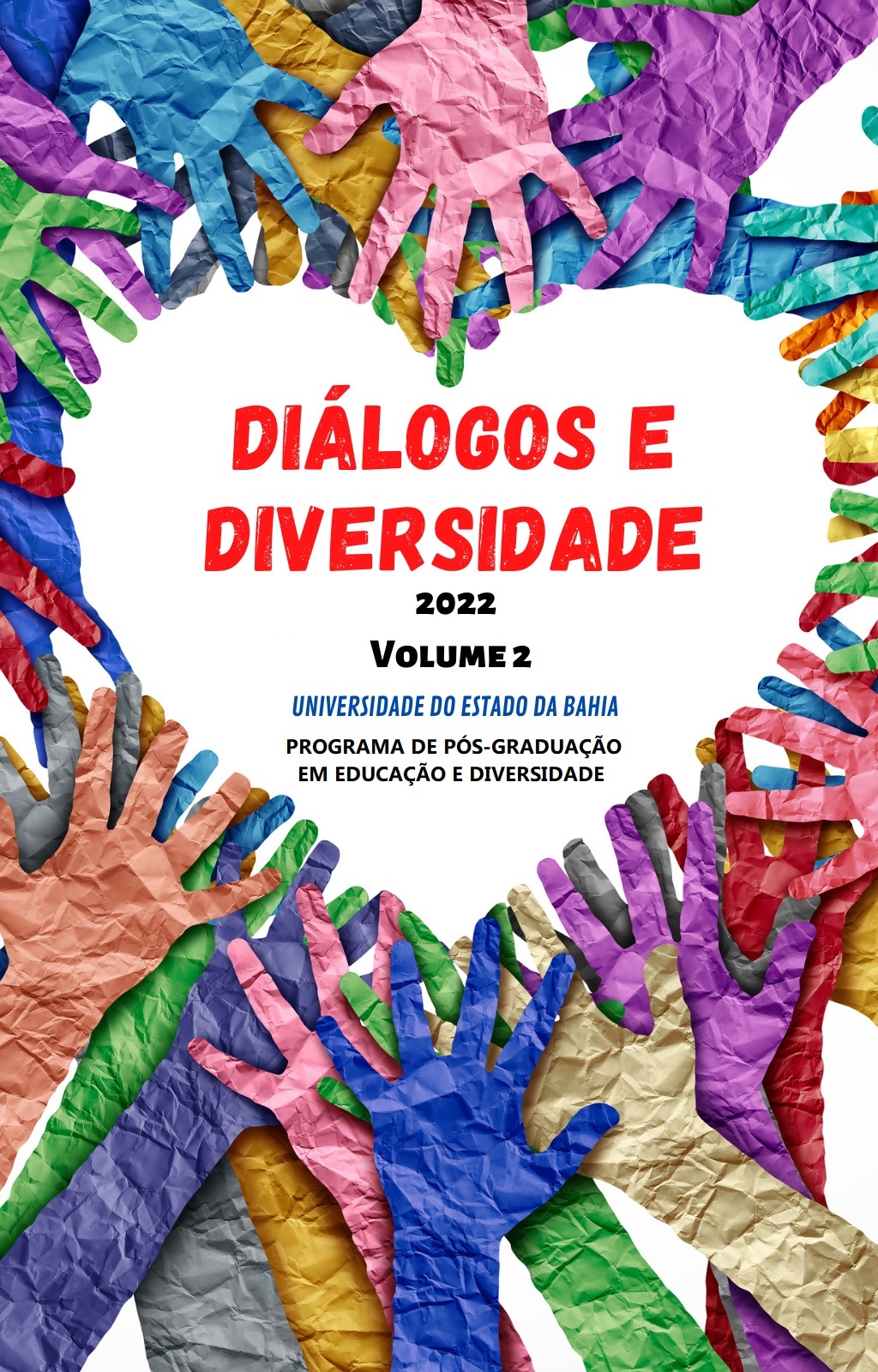Social networks and new models of communication in education
Keywords:
Social networks, communication, education, learning communities, 21st century.Abstract
Thinking in terms of the 21st century, almost irreparably, we come up against social networks and an emerging model of communication in education. To do otherwise would be to look the other way and not attend to reality and demands as they are. Contemporary teachers must provide answers to the questions of their students, the family and the educational institution, which is no longer anchored to the past. A modern teacher has to look at the social networks, not just look at them. They must demand and be up to date, because it is a new blackboard where problems, doubts or questions about teaching are written and rewritten. In a way, if you can't beat your enemy, if that's what the networks are considered to be, we have to ally ourselves with them in order to learn and be able to teach.
Downloads
References
ADELL, Jordi y CASTAÑEDA, Linda. Tecnologías emergentes, ¿pedagogías emergentes? In. José HERNÁNDEZ, Massimo PENNESI, Diego SOBRINO y Azucena VÁZQUEZ (Coord.). Tendencias emergentes en educación con TIC. Barcelona: Asociación Espiral, Educación y Tecnología; 13-32, 2012.
AREA, Manuel y GUITERT, Montse. La educación en la sociedad de la información. Barcelona: Fundació per la Universitat Oberta de Catalunya, 2003.
BARROSO, Julio y CABERO, Julio. Nuevos escenarios digitales: las tecnologías de la información y la comunicación aplicadas a la formación y desarrollo curricular. Madrid: Pirámide, 2013.
BAUTISTA, Antonio y VELASCO, Honorio. Antropología audiovisual: medios e investigación en educación. Madrid: Trotta, 2011.
BEETHAM, Helen y SHARPE, Rhona. Rethinking pedagogy for a digital age. Londres: Routledge, 2013.
GARCÍA, Iolanda y GROS, Begoña. Innovar para enseñar. En Guillermo Bautista y Ana ESCOFET, (Eds): Enseñar y aprender en la Universidad. Claves y retos para la mejora. Barcelona: Octaedro; 9-46, 2013.
GIMENO, José. En busca del sentido de la educación. Madrid: Morata, 2013.
GUITART, Montse. El cambio docente con el uso de las TIC. Congreso DIM-AULATIC-2. Barcelona, 19 de marzo, 2010.
HARGREAVES Andy y SHIRLEY, Dennis. La cuarta vía. El prometedor futuro del cambio educativo. Octaedro: Barcelona, 2012.
MORATALLA, Agustín. Educación y redes sociales. La autoridad de educar en la era digital. Encuentro: Madrid, 2013.
RISSOAN, Román. Redes sociales. Comprender y dominar las nuevas herramientas de comunicación. Eni: Barcelona, 2019.
ROIG, Rosabel y LANEVE, Cósimo. La práctica educativa en la sociedad de la información. Alcoy: Marfil, 2011.
SACRISTÁN, Ana. Sociedad del conocimiento: tecnología y educación. Madrid: Morata, 2013.
SALINAS, Julio. Nuevas modalidades de formación: entre los entornos virtuales institucionales y los personales de aprendizaje. In: José TEJADA (Cood). Estrategias de innovación en la formación para el trabajo. Madrid: Tornapunta ediciones, p. 209-224, 2009.
SANCHO, Juana. Tecnología para transformar la educación. Madrid: AKAL/UNIA, 2006.
SANCHO, Juana. ¿Qué educación, qué escuela para el futuro próximo? Educatio Siglo XXI, Murcia, n. 27; p. 13-32, 2009.
SÁNCHO, Juana. ¿Son más listos o más estúpidos? ¿Dónde está la educación? Hachetetepé. Revista científica de Educación y Comunicación, Cádiz, n. 9, p. 71–80, 2014. DOI: 10.25267/Hachetetepe.2014.v2.i9.7. Disponível em: https://revistas.uca.es/index.php/hachetetepe/article/view/6258. Acesso em: 13 oct. 2022.
SANTOVEÑA, Sonia. Cartografía de la sociedade y educación digital. Investigación y análisis de perspectivas. Tirant: Valencia. 2021.
SUSINOS, Teresa. Las posibilidades de la voz del alumnado para el cambio y la mejora educativa. En Revista de Educación, Madrid, 359, p. 16-23, 2012.
SUTTON, Brian y BASIEL, Anthony. Teaching and Learning Online: New Models of Learning for a Connected World. Volume 2. Londres: Routledge, 2013.
TORRES, Rosa. Comunidad de aprendizaje: repensando lo educativo desde el desarrollo local y desde el aprendizaje. Documento presentado en el Simposio Internacional sobre Comunidades de Aprendizaje. Barcelona Forum, 2001.
TRUJILLO, Juan, MARÍN, José, ALONSO, Santiago y RODRÍGUEZ, Carmen. Redes sociales y educación. In: Enrique SÁNCHEZ, Ernesto COLOMO y Julio RUIZ. Tecnologías de la información y la comunicación en contextos educativos. Madrid: Síntesis. 2020, p. 107-188.
VÁZQUEZ, Ana; CABERO, Julio. Las redes sociales aplicadas a la formación. Revista Complutense de Educación, v. 26, Madrid, 24 feb.2015, p. 253-274. https://doi.org/10.5209/rev_RCED.2015.v26.47078
Downloads
Published
How to Cite
Issue
Section
License
Copyright (c) 2022 Vitor Amar Rodríguez

This work is licensed under a Creative Commons Attribution-ShareAlike 4.0 International License.
Direitos Autorais
A submissão de originais para a Revista Diálogos e Diversidade (RDD) implica na transferência, pelas(os) autoras(es), dos direitos de publicação. Os direitos autorais para os manuscritos publicados nesta revista são das(os) autoras(es), com direitos da RDD sobre a primeira publicação. As(os) autoras(es) somente poderão utilizar os mesmos resultados em outras publicações indicando explicitamente a RDD como o meio da publicação original.
Licença Creative Commons
Exceto onde especificado diferentemente, aplicam-se à matéria publicada neste periódico os termos de uma licença Creative Commons Attribution-ShareAlike 4.0 International License, que permite copiar e redistribuir o material em qualquer suporte ou formato, adaptar, remixar, transformar, e criar a partir do material para qualquer fim, mesmo que comercial, dando o crédito apropriado, prover um link para a licença e indicar se mudanças foram feitas, distribuindo as suas contribuições sob a mesma licença que o original, não podendo aplicar termos jurídicos ou medidas de caráter tecnológico que restrinjam legalmente outros de fazerem algo que a licença permita.



 Esta obra está licenciada com uma Licença
Esta obra está licenciada com uma Licença 